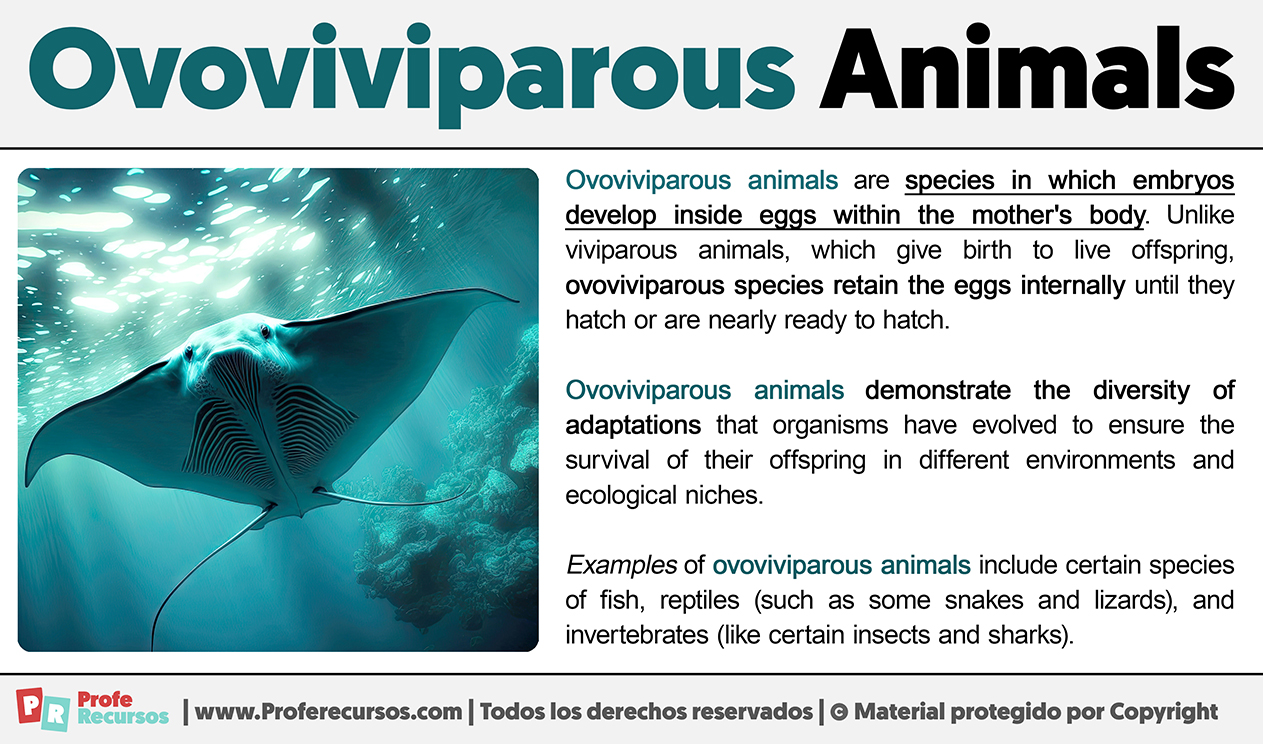Ovoviviparous animals are species in which embryos develop inside eggs within the mother’s body. Unlike viviparous animals, which give birth to live offspring, ovoviviparous species retain the eggs internally until they hatch or are nearly ready to hatch.
Ovoviviparous animals demonstrate the diversity of adaptations that organisms have evolved to ensure the survival of their offspring in different environments and ecological niches.
Examples of ovoviviparous animals include certain species of fish, reptiles (such as some snakes and lizards), and invertebrates (like certain insects and sharks).


